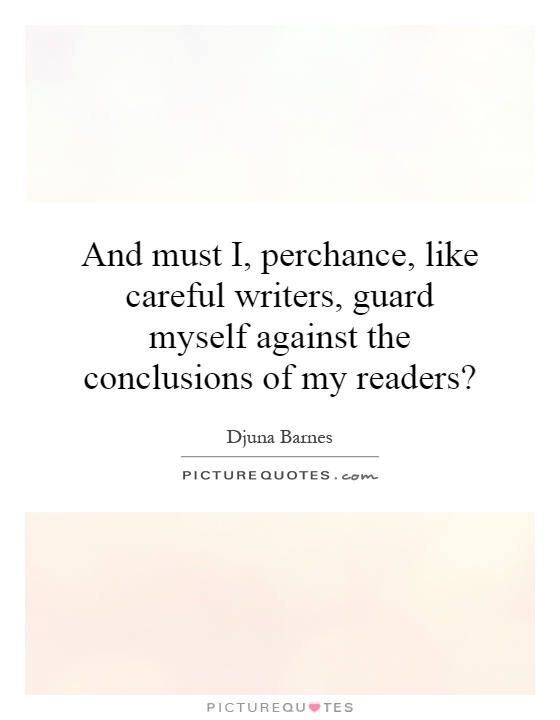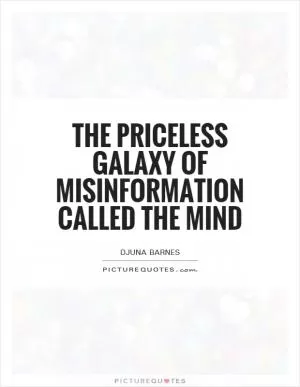And must I, perchance, like careful writers, guard myself against the conclusions of my readers?

And must I, perchance, like careful writers, guard myself against the conclusions of my readers?
Djuna Barnes, a pioneering modernist writer known for her experimental and boundary-pushing works, often grappled with the question of how much control she should exert over her readers' interpretations of her writing. In her novel "Nightwood," Barnes explores themes of gender, sexuality, and identity in a fragmented and non-linear narrative that challenges traditional storytelling conventions. As a result, her work has been subject to a wide range of interpretations and analyses, leading Barnes to question whether she should actively shape or guide her readers' understanding of her work.The quote "And must I, perchance, like careful writers, guard myself against the conclusions of my readers?" reflects Barnes' ambivalence towards the idea of authorial intent and the role of the writer in shaping the reader's experience. On one hand, Barnes may have felt a desire to maintain a certain level of ambiguity and open-endedness in her writing, allowing readers to come to their own conclusions and interpretations. This approach aligns with the modernist belief in the autonomy of the reader and the idea that meaning is not fixed or predetermined by the author.
On the other hand, Barnes may have also felt a sense of responsibility or concern about how her work would be received and understood by her audience. As a writer who often pushed the boundaries of conventional storytelling and challenged societal norms, Barnes may have been aware of the potential for misinterpretation or misrepresentation of her work. In this sense, she may have felt a need to "guard" herself against the conclusions of her readers in order to ensure that her intentions and message were not lost or distorted in the process.
Overall, Barnes' quote speaks to the complex and often fraught relationship between the writer and the reader, and the tension between artistic freedom and the desire for clarity and understanding. By questioning the extent to which she should shape or control her readers' interpretations, Barnes highlights the inherent uncertainty and subjectivity of the reading experience, inviting readers to engage with her work on their own terms and draw their own conclusions.












 Friendship Quotes
Friendship Quotes Love Quotes
Love Quotes Life Quotes
Life Quotes Funny Quotes
Funny Quotes Motivational Quotes
Motivational Quotes Inspirational Quotes
Inspirational Quotes